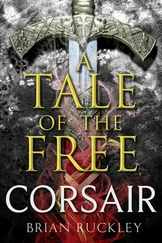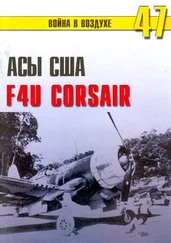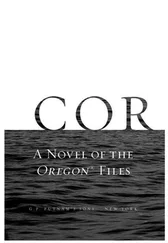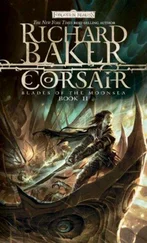Then he knew what had unnerved Dunton. The long pennant which hung from the stranger’s masthead was stirring. Hector could make out its colours, red and white. And the gun smoke which had shrouded the tall hull was drifting clear in wisps. The calm had ended, and a light breeze had sprung up. Even as he watched, Hector saw the great sails begin to flap and lift as they filled with the wind, and slowly the sailing ship began to move through the water. Even as the crippled corsair galley desperately tried to close the gap, the great ship began inexorably to slide out of reach.
‘Fortsa! Fortsa!’ The overseers were in a frenzy, demanding a final effort from the oarsmen. But the oarsmen were nearly collapsing. Hector, his nostrils filled with the smell of gunpowder, heard their sobs of exhaustion and effort. Several of the men were merely going through the motions of rowing, trying to keep time with their comrades. Here and there Hector saw a rower give up the effort, and slump to the deck.
Another crash, and this time a cannonball smashed a bloody track through the oar benches, body parts flying into the air. The fervour and discipline of the oarsmen began to disintegrate, as more and more of them realised that their efforts were useless.
Izzet Darya could not catch the sailing vessel. Several teams of oarsmen stopped rowing, releasing their grip on the oars and sitting down on the benches, their bare chests heaving as they gasped for breath. The motion of the corsair galley slowed to a crawl as their prey steadily drew farther and farther away.
Dunton was shouting at one of the Turkish petty officers. Hector guessed the Turk was the caravana in charge of sail handling. ‘Leva! Leva!’ Dunton was bawling, waving his arms frantically. ‘Hoist sail! Hoist sail!’ But there was no response. The Turk seemed at a loss, unable to act. It was the captain himself who responded. Moving to a position where the oarsmen could see him clearly, he called out, ‘Well done, my children! You have given of your best. Now is the time to make best use of the wind that comes also from Allah. We will become falcons!’ He had raised his right arm in a gesture of encouragement when, shockingly, he was struck by a hail of metal. One moment he was standing on the aft deck, and the next instant his body had been flung backward and he was just a lifeless heap on the deck, his white gown like a rumpled shroud. Nor had his officers escaped unscathed. The pilot was clutching at his face, blood seeping between his fingers, and the aga was staring down, numbed, at a mangled foot. ‘Oh Lord be our Protector!’ groaned Dunton. ‘Perrier guns. They’re going to finish us off.’
Hector tore his gaze away from the sight of the dead reis and looked towards the big sailing ship. The crew were brailing up the sails, slowing their vessel now that she was at a safe distance from the crippled galley and could manoeuvre. Even as he watched he saw activity on the high stern deck. Men were clustering around the light swivel cannon mounted along the rail, the perrier guns which could send hails of small shot and sweep a deck clear of men.
‘Leva! Leva!’ Again Dunton was roaring and gesticulating. He leapt up on to the main spar and frantically began unlacing the sail ties. Farther forward, the braver and more experienced sailors on the crew were hastily uncoiling the main halyard where it had been stowed, and laying it out along the catwalk. Those overseers still on their feet began to push and shove men into position where they could begin to raise the sail. A tall, thin Algerine with a wild look in his eye began to chant a work song, and incredibly some sense of order and discipline returned as perhaps a score of those not wounded began to haul on the great rope and the massive mainyard slowly began to rise.
The spar was dangling some ten feet in the air when there came another crash of cannon, the loudest yet. This time it was not the irregular thump and report of individual guns, but the ragged roar of a broadside. At point blank range the warship’s gunners could not miss. The broadside struck the stationary galley amidships, and broke her back. Men and oars were flung into the water. The bow and stern both tilted upward as the mid section of the venerable hull began to sink under water. The sea rushed in on the benches and Hector heard the desperate screams of the slave rowers still chained to their benches and unable to escape. The stern deck slanted under his feet, and sick at heart he watched Turgut’s corpse slip down and come to rest against the rail, itself already half under water.
Shocked and dazed, he grasped at a splintered post. Then, as the stern section began to roll over, he was washed into the sea.
As he came back to the surface, he realised that something had changed. The sounds of firing had nearly stopped, though the air was still thick with gun smoke. He coughed and choked. Something nudged against his shoulder, and he clutched at it blindly. He found he was grasping the canopy from the galley’s stern deck. Air had been trapped within the cloth so that it had risen to the surface, and was bobbing, half submerged. Steadying himself with one hand on the makeshift raft, Hector looked around.
The captain’s bloody death had distracted him from thinking about Dan’s fate, but now he scanned the mess of flotsam and wreckage, trying to spot his friend. The bow section of the galley was almost gone below the surface, and he saw only the heads of a few strangers nearby. Dan had disappeared. Closer to hand he glimpsed a face that was familiar. Thirty yards away was Dunton. He was clinging to a small piece of floating wood which was insufficient to keep him afloat. Every few seconds Dunton would submerge, coming back to the surface with panic in his face. ‘Here! Here! Swim over here!’ Hector called out. Dunton heard him, and twisted round to face him. Again he half-disappeared and was spitting water as he came back to the surface. ‘I can’t!’ he gasped. ‘I cannot swim!’
Hector had learned to swim during his summers on the Irish coast and now he slid into the water and struck out for the English sailor. ‘Here, hang on to me,’ he gasped as he reached Dunton. ‘I’ll tow you back.’
Dunton was floundering desperately. ‘It won’t work. That slave ring on my ankle pulls me down.’
‘Come on!’ snarled Hector. ‘Hold on round my neck. You can do it!’
With a sudden lunge Dunton abandoned the sinking flotsam and grabbed on to his rescuer. Hector clenched his teeth and began to swim, trying to regain the raft. The effort was enormous. However hard he swam, he was making little headway. Dunton was a dead weight on his back, pulling him down. Hector took great mouthfuls of air and knew that his strength would soon ebb away. He swallowed a mouthful of seawater, gagged, and for a moment he thought that he too would drown. Squeezing his eyelids shut to clear his eyes of the salt water he looked ahead, trying to judge how far he had come. He was still not halfway to the makeshift raft. ‘I said you could not make it,’ whispered Dunton behind his ear, and then – miraculously – the sailor’s grip relaxed and Hector found himself swimming free. He glanced over his shoulder and had a last glimpse of Dunton as he slipped under the water.
Even without the English sailor on his back, Hector was at his last gasp when finally he reached out and touched the floating canopy. Pulling himself up on its slippery wet surface, he lay there panting. Dimly he was aware of other survivors from the disaster who approached the raft. Once or twice he felt the canopy shift beneath him as they too heaved themselves on to its surface. He lay with his eyes closed, utterly spent and still in shock from seeing the captain meet his death. The captain had bought him in the same way as a farmer buys a promising colt at auction, yet Hector could only remember Turgut’s kindness, his compassion, and the words of encouragement when his protégé had faced his sunnet – ‘Don’t be afraid. It happens at once, and is a wonderful thing as Allah has wished. Praise be to God.’ Hector hoped that the same was true for the manner of Turgut’s death.
Читать дальше








